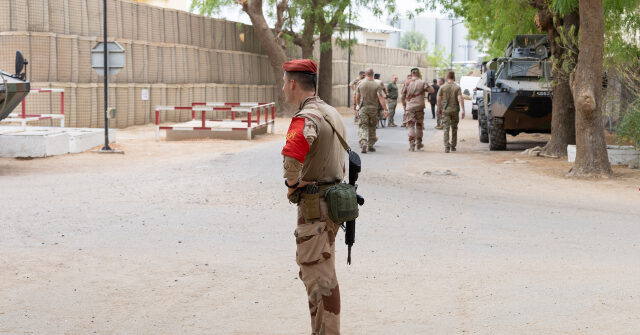The government of Chad recently announced the unexpected termination of its military cooperation pact with France, a move that caught both Chadian and French observers off guard. This agreement’s dissolution means that approximately 1,000 French troops currently stationed in Chad will be required to withdraw, although a specific timeline for this withdrawal has yet to be established. Chad’s Foreign Minister, Abderaman Koulamallah, emphasized that this decision should not be seen as a complete severance of ties with France. Instead, he characterized it as a recognition of Chad’s maturation as a sovereign state, stating that France is still considered an essential partner but must acknowledge Chad’s desire for greater autonomy and respect for its sovereignty.
The announcement coincided with the celebration of the 66th anniversary of Chad’s independence, underscoring the symbolic importance of this shift in military relations. Historically, French military presence in Chad represented Paris’s foothold in the Sahel region, which has been a focal point for terrorism and instability in Africa. With Chad’s decision, France finds itself in a precarious position, having already faced significant military withdrawals from surrounding nations such as Mali, Burkina Faso, and Niger, where French forces have been expelled in recent years. This development raises questions about France’s ability to maintain influence and operational capabilities in a region increasingly marked by insecurity.
Moreover, Chad’s move may inadvertently provide new opportunities for Russia to expand its presence in Africa. Following a pivot towards Moscow by Chad’s President Mahamat Deby, especially after meetings with Russian President Vladimir Putin in January, analysts speculate that Deby may be seeking to balance relations between France and Russia to secure more favorable arrangements for Chad. Russian mercenary groups, particularly the Wagner Group, are already active in several of Chad’s neighboring countries, raising concerns among Western powers about growing Russian influence in the volatile Sahel region. This could shift the geopolitical dynamics in Africa considerably, particularly for countries struggling with security issues.
The abrupt nature of Chad’s announcement left French officials stunned, as notable figures, including Foreign Minister Jean-Noel Barrot, had seemingly been unaware of the impending termination during their visits and discussions with Chadian leaders. France’s recent efforts at diplomacy following Deby’s visit to Moscow appeared insufficient to secure the military pact, as the Chadian government’s actions reflect a broader trend of seeking to diversify security partnerships away from France. Analysts suggest that the Chadian president’s skepticism towards French President Emmanuel Macron has contributed to the decision, as Deby contends with significant anti-French sentiment domestically.
The geopolitical implications continue to unfold beyond Chad, with Senegal’s President Bassirou Diomaye Faye signaling a similar sentiment regarding France’s military presence in his country. Faye’s remarks highlight a growing conviction among African leaders about the necessity for absolute sovereignty and the expiration of foreign military bases on their soil. His statement reflects a broader trend across West Africa wherein nations are increasingly grappling with the legacy of colonialism and expressing a desire for complete autonomy, as illustrated by Senegal’s discussions on hosting foreign troops since the period of slavery.
Additionally, the news of Chad’s military pact termination extends to the United States, which faces its own challenges concerning military presence in the region. Earlier in the year, Chad announced the termination of its Status of Forces Agreement with the U.S. through a quick and unceremonious note handed over to an American official. This sequence of events underscores a potential trend of African countries reassessing their military relationships with former colonial powers and superpower nations alike, positioning themselves as more autonomous and assertive actors on the international stage. As the geopolitical landscape in Africa continues to shift, the long-term implications of these developments for both European and American influence in the region remain uncertain.

